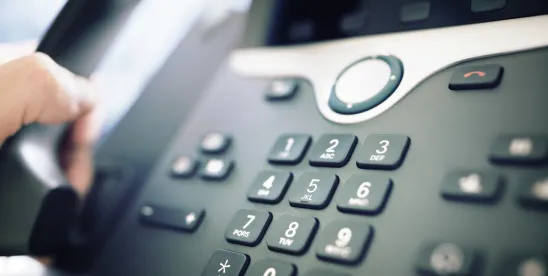In February of last year, Privacy World reported on the Federal Communications Commission’s (“FCC” or “Commission”) clarification and codification of its Telephone Consumer Protection Act (TCPA) consent rules (“Revocation Order”). Among other things, the agency confirmed that consent to receive autodialed calls and texts could be revoked by “any reasonable means” and included specific examples of such of such methods.
Significantly, the Revocation Order prescribed that the scope of such a revocation would include further robocalls or robotexts to that party, except those exempted from the consent requirement, which have been enumerated by the FCC (e.g., calls that do not require prior consent as set out in 47 CFR § 64.1200(a)(3), (9), such as healthcare related messages). For example, a revocation to stop bank statement availability reminders would extend to any other robocalls or robotexts from the bank. The FCC ultimately set April 11, 2025 as the effective date for these provisions.
But just a month before that date, several associations of banks and financial institutions petitioned the FCC for a one-year waiver of the new Revocation Order, arguing there was “good cause” to do so “because financial institutions face numerous challenges modifying existing communications to process ‘a revocation sent in response to one business unit’s call or text so that all business unit’s cease placing calls or texts to the consumer.’”
Just days before the effective date, the FCC has concluded that “special circumstances justify a limited extension to allow calls or senders of text messages a reasonable opportunity to ensure that they can process revocation requests consistent with [FCC] rules.” The limited waiver – until April 11, 2026 – applies only “to the extent the rule requires callers to treat a request to revoke consent made by a called party in response to one type of message as applicable to all future to all future robocalls and robotexts from that caller on unrelated matters.” Businesses should clearly distinguish different messaging programs so that a simple “Stop” opt-out to one program (e.g., store discounts) does not apply to another program (e.g., store loyalty programs). By doing so, a simple “Stop” to specific messages is not required to equate – at least for the next year – with “Stop All” for all non-exempt messages. If programs are not clearly distinguished, businesses should consider providing an opt-out confirmation message where consumers may clarify the scope of their revocation, which is explicitly provided for in the Revocation Order and will take effect.
The FCC emphasized the limited extent of its action. The ruling does not otherwise delay the April 11, 2025 effective date of other rules adopted in its original Revocation Order and it does not alter the status quo of other prior FCC decisions addressing revocation of consent issues.
Further, if a consumer clearly indicates, using reasonable means, that he or she does not want to receive any further robocalls or robotexts on any subject, that request is not exempt from being honored. And the issue of what constitutes a “reasonable means” for revoking consent can still be subject to challenge. Businesses should ensure that they are able to effectuate opt-outs, including those received via other mediums (e.g., telephone calls and emails), to the messaging systems within ten (10) business days of receipt. The application and interpretation of the rules taking effect will be watched closely by callers and consumer groups. But for a year, one element of the rule has now been waived.




 />i
/>i

